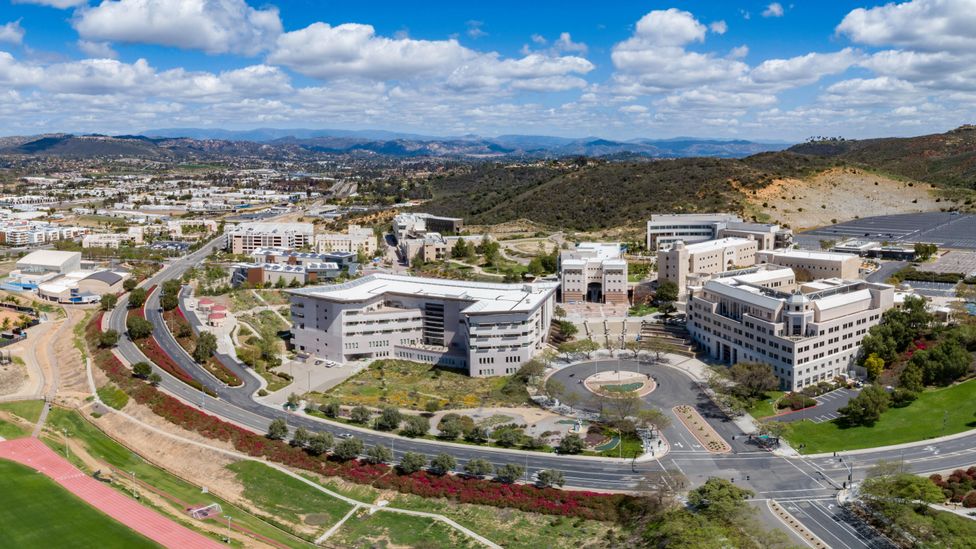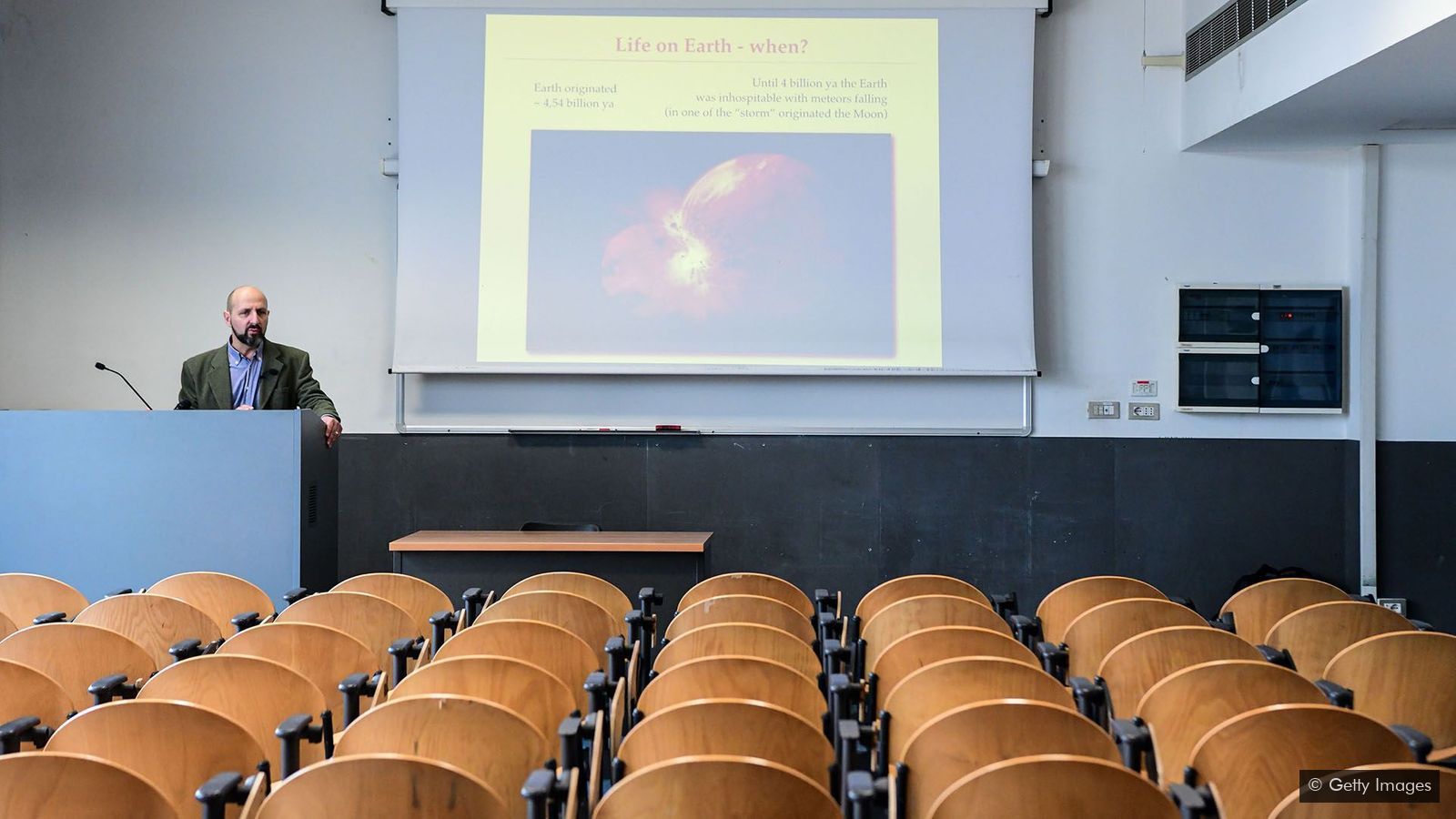This article originally appeared in BBC News: https://www.bbc.com/worklife/article/20200603-the-rise-of-the-pandemic-era-gap-year
As some universities announce plans to hold classes online from September to maintain social distancing, new students face a tough choice – should they delay?D
Devon Tyrie had a plan for the 2020-2021 academic year. The Massachusetts native wanted to take a gap year between graduating from high school and starting university, combining volunteer work, international travel and internships. But with the world still in the grip of Covid-19, it’s clear her year will not pan out as envisaged.
Tyrie, 18, says she’s had to make a decision based on worst-case scenarios. She’s been accepted by Middlebury College in Vermont, which like many US institutions, has not yet released plans for the upcoming semester. But some higher education institutions in both the US and the UK have already said they will shift to a predominantly online learning environment for part or all of the next academic year. Tyrie says she’s had to weigh up the risks; if she goes straight to college her first year may be far from the traditional experience, yet if she takes a gap year, her activities will likely be limited. In the end, she’s applied for a deferral to the next academic year. “It’s kind of tough right now, not knowing, but I’m doing my best to make a plan,” says Tyrie.
Her reluctance to start her university education virtually is by no means unique. For students, it’s not an attractive prospect, especially given most universities continue to charge full tuition fees. Madelyn Mackintosh, 17, was looking forward to studying physiology and political science at McGill University in Canada. “Five months ago, a gap year was definitely not in the cards,” she says. But McGill is in Montreal, Canada’s Covid-19 hotspot, leaving Mackintosh anxious. Then she found out that McGill was making most of its classes online. “That morning, I wrote to the deferral department and I requested a deferral.”
‘That’s not college’
Taking a gap year between high school and university is fairly common in many parts of Europe, the UK, Australia and New Zealand. In the US, the practice is less common, but attracted mainstream attention in 2016 when Barack Obama’s daughter Malia took a gap year before attending Harvard University. Critics point out that the gap year is often an opportunity reserved for the wealthy. Yet the concept – and its pros and cons – is under increased scrutiny now as students all over the world weigh up their options for the year ahead.
It’s kind of tough right now, not knowing, but I’m doing my best to make a plan – Devon Tyrie
In a recent study on Covid-19 and university access, the London-based Sutton Trust, a social mobility organisation, found that one in five university applicants (19%) in the UK had changed their mind about university attendance for the 2020 academic year – whether in terms of their preferred university or by deferring a place in favour of a gap year.
In the US, a survey conducted in April by Baltimore-based consulting firm Art & Science Group found that 17% of students had changed their college plans due to Covid-19. Of those students, 16% indicated that they would take a gap year, while 17% said they would wait until the spring semester (which would start in January 2021) to enrol in university full-time. A third said they would enrol in university on a part-time basis.
A ‘gap year’ usually involves students taking a year off before university for traveling or other purposes, if they have the means to do so (Credit: Alamy)
It’s far from being an easy decision. Gabriel Hostin, 17, had decided before Covid-19 that he would take a gap year before attending Harvard. Now, he says, there are uncertainties surrounding his plans to travel internationally – something he hopes will change at the start of 2021. In terms of the immediate future, he’s looking at domestic volunteer programmes including community work closer to the New York area, where he’s from. For his peers who are going straight to university, he says there’s concern about not being able to be on the campus when the academic year starts. “For me, that’s not college,” says Hostin.
New opportunities?
It’s a sentiment that Joshua Kim and Edward Maloney, authors of Learning Innovation and The Future Of Higher Education, understand.But Kim, the director of online programs and strategy at Dartmouth College, says, “I think you really have to distinguish between true gap year experiences and simply stopping for a year or waiting for a year.”
Kim, whose daughter took a gap year in South Korea through a US-government funded initiative, says that for a gap year to be valuable, it needs to be educational and ideally have a structured component. That’s extremely difficult to do right now, says Maloney, with social distancing rules and travel restrictions likely to be in place for the foreseeable future. Having an unplanned and unstructured gap year that essentially equates to a “leave of absence” can be detrimental to students, say Kim and Maloney, because they’re more likely to lose their momentum and decide not to attend college altogether.
Kim and Maloney are confident that colleges will be able to adapt to provide an enriching learning environment even in the absence of physical lectures, though caution that students expecting traditional social and sporting experiences will be disappointed. As to whether the move online will deliver value for money, both say that while the experience will be different, those who are committed to their education can probably take advantage of unique opportunities. Maloney, an English professor and the executive director of the Center for New Designs in Learning and Scholarship at Georgetown University, believes that more colleges will involve students in designing their education – a shift from their traditional role as consumers. A potential example of this, he says, is involving undergraduates in a professor’s research endeavour, allowing them to build stronger mentor-mentee relationships.
In the UK, Mike Nicholson, director of undergraduate admissions for the University of Bath, says that many schools are awaiting more guidance from the government before releasing their plans for the 2020-2021 academic year. He is optimistic that the institution is “developing expertise” in remote teaching but acknowledges that there are many unknowns – particularly when it comes to recreating experiences like laboratory classes.
California State University in San Marcos. The entire California State system of 23 schools has announced it will be digital-only for the autumn 2020 term (Credit: Alamy)
No right answer
Given the lack of clarity around what either a university or gap year experience might look like, Michelle Dittmer, president and co-founder of the Canadian Gap Year Association, says she’s hearing “a lot of defeat in people’s voices because they just don’t know what’s possible”.
“The good news is there is no wrong decision. The bad news is there is no right decision either,” says Dittmer. She urges students to be creative and think about what a gap year under current realities could look like, and realise that no decision is final. A gap year allows students to be “opportunistic”, she says, because “social distancing might be lifted tomorrow, in September, or in October. If you’re on a gap year, you have the flexibility to adapt your plans as those things happen.”
For those who struggle to find meaningful activities, Dittmer suggests thinking about using the skills you have to help organisations that might benefit. “There are so many charities screaming for support,” says Dittmer. “If you’re a photographer, can you go out into nature and donate your photos to a climate action group so they can use it in their marketing campaign? If you’re passionate about energy use, maybe you can design an app so people can estimate how much electricity they use in their house.”
Rebecca Montacute, Sutton Trust’s research and policy manager and co-author of the report on 2020 university attendance, believes that those from lower-income families are less likely to have access to opportunities that make taking a gap year valuable. Students from higher-income families may be able to afford to take online courses or find internship opportunities through parents’ professional networks. But less advantaged students “need to have access to finance or they need to be employed in some way”, she says. “I think my biggest worry is they may find it very difficult to find a minimum wage job at the moment.”
Robbed or reframed?
One thing university advocates and gap year organisers agree on is that whatever decision a student makes, they need to be aware that their experience is likely to be different from the pre-pandemic norm.
To be right on the brink of having a real incredible experience and having that being taken away by something that you have zero control over is heartbreaking and really frustrating – Madelyn Mackintosh
Ethan Knight, executive director of US-based Gap Year Association, says that students need to think about why they want to take a gap year in the first place. The ‘why’ shouldn’t be that Covid-19 is robbing them of their first year of college, says Knight. “It comes down to what you hope to get out of this experience. What do you want your future to look like?”
That’s the debate Madelyn Mackintosh is wrestling with right now. “To be right on the brink of having a real incredible experience and having that being taken away by something that you have zero control over is heartbreaking and really frustrating,” she says. “I’m a science student, but long term, I want to go into public health. How I’m trying to reframe this is, well, we’re in the middle of a public health crisis, maybe I can get some public health experience.”
And while she admits that she doesn’t know what that looks like just yet, she’s doing her best to remain optimistic. She’s weighing up living on her own or find a job away from her home in Toronto. “I think it could be a beneficial experience, even though it’s going to be more challenging. I think it could be valuable in its own way.”

